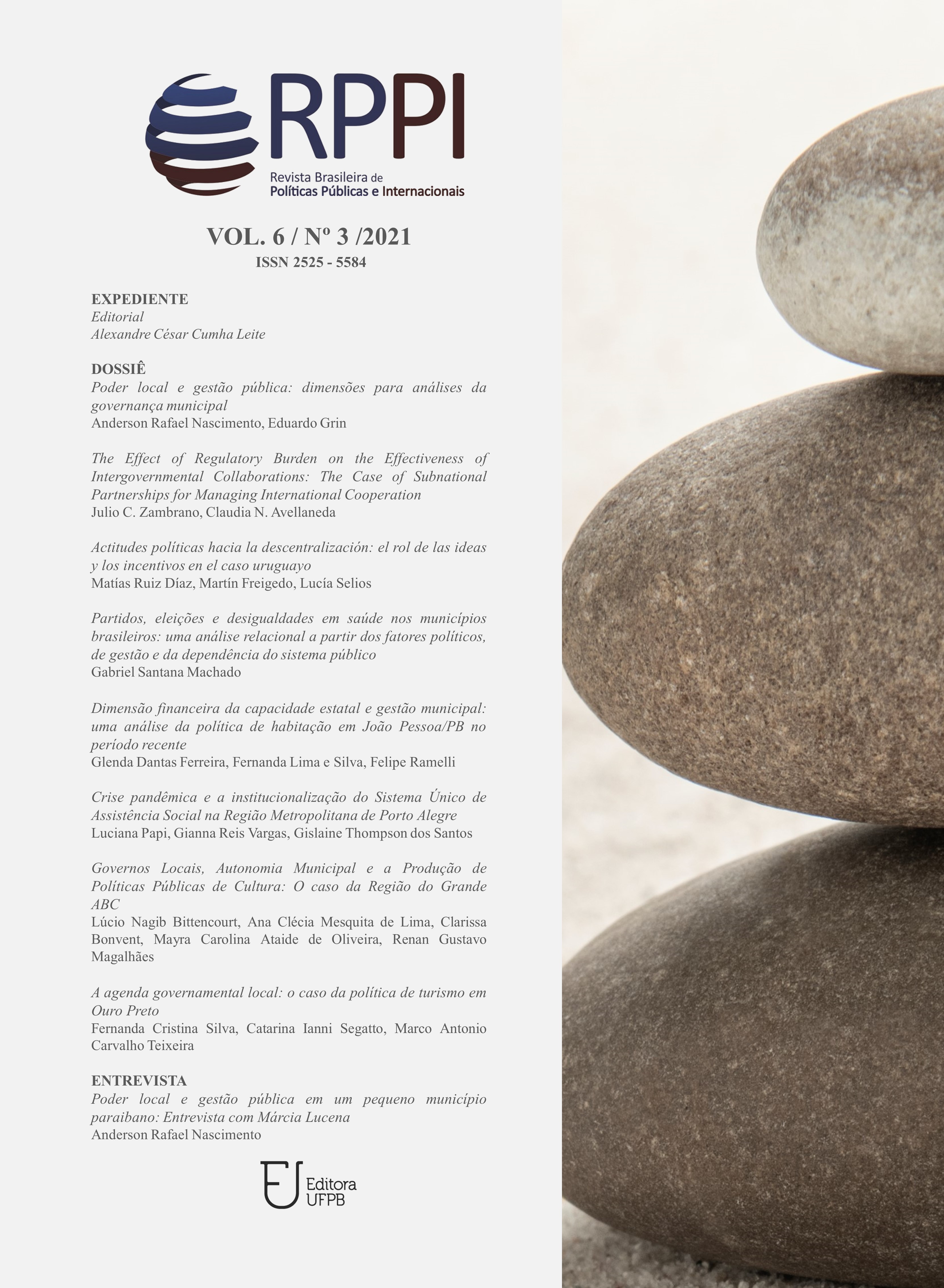A agenda governamental local: o caso da política de turismo em Ouro Preto
DOI:
https://doi.org/10.22478/ufpb.2525-5584.2021v6n3.59740Keywords:
formação de agenda, mudança na política pública, turismo, município, Ouro PretoAbstract
This paper seeks to analyze the factors that influence the tourism policy changes in the local governmental agenda based on theoretical approaches that explain the agenda-setting process. A single case study, Ouro Preto - Minas Gerais, was important to comprehend in-depth a topic that is still underexplored, which can contribute as a reference to analyze a global phenomenon - the tourism. The data were collected through documental research and semi-structured interviews with governmental managers involved in this field, local leaderships, and representatives from private and non-governmental organizations, and they were analyzed through a content analysis method. The findings show that the political changes were explained by an alternation between two ideas – promoting tourism to economic development and the preservation of the historic heritage – influenced by specific actors who were key to build consensus around these antagonistic and irreconcilable ideas. We conclude that the way tourism was historically seem in the governmental of Ouro Preto was influenced by the political context and ideas that local actors have about the tourism impact in the city's development.
Downloads
Additional Files
Published
Issue
Section
License
Copyright (c) 2022 Fernanda Cristina Silva, Catarina Ianni Segatto, Marco Antonio Carvalho Teixeira

This work is licensed under a Creative Commons Attribution 4.0 International License.
Autores que publicam nesta revista concordam com os seguintes termos:- Autores mantém os direitos autorais e concedem à revista o direito de primeira publicação, com o trabalho simultaneamente licenciado sob a Licença Creative Commons Attribution que permite o compartilhamento do trabalho com reconhecimento da autoria e publicação inicial nesta revista.
- Autores têm autorização para assumir contratos adicionais separadamente, para distribuição não-exclusiva da versão do trabalho publicada nesta revista (ex.: publicar em repositório institucional ou como capítulo de livro), com reconhecimento de autoria e publicação inicial nesta revista.
- Autores têm permissão e são estimulados a publicar e distribuir seu trabalho online (ex.: em repositórios institucionais ou na sua página pessoal) a qualquer ponto antes ou durante o processo editorial, já que isso pode gerar alterações produtivas, bem como aumentar o impacto e a citação do trabalho publicado (Veja O Efeito do Acesso Livre).




_.jpg)






.png)


.jpg)
_.png)
